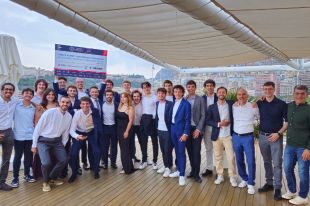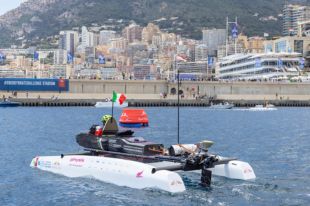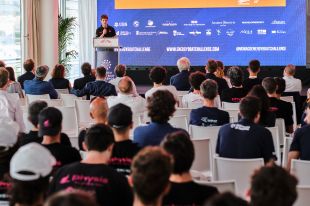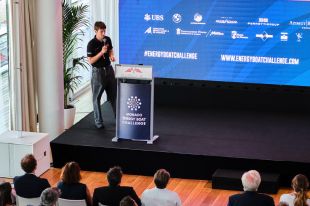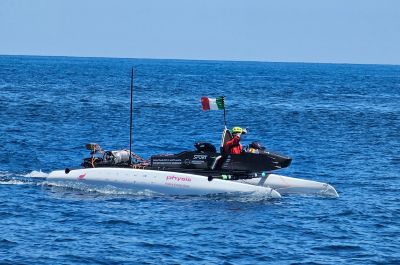
The student team Physis PEB from the Politecnico di Milano participated in the 11th edition of the Monaco Energy Boat Challenge, organized by the Yacht Club Monaco in the Principality of Monaco. The team comprises over 30 students from various undergraduate and graduate programs at the Politecnico di Milano. As a multidisciplinary project, it requires engineering expertise and skills in management, communication, and collaboration.
The Monaco Energy Boat Challenge is a nautical competition focused on innovation and sustainability. Participants explore new technologies, innovative materials, and alternative propulsion systems that reduce environmental impact while maintaining nautical performance. This includes using solar power, hydrogen, electricity, and other renewable energy sources to power the boats. The challenge promotes creative solutions that prioritize sustainability without compromising performance, and participants must demonstrate their ideas through practical and feasible projects or prototypes, highlighting the positive impact these innovations can have on the marine industry and the environment.
This year, over 50 teams participated, including 40 university teams from 25 countries. In addition to four on-water races (speed, endurance, manoeuvrability, and a head-to-head challenge), technical presentations were evaluated to assess the quality and impact of the projects.
The team’s boat, Ione 3.0, is a hybrid propulsion vessel powered by a 4 kWh battery and hydrogen fuelling a 3 kW fuel cell. Due to weight constraints, the structure was designed and built by the team members at the Politecnico. The primary material used is carbon fibre, with smaller amounts of Kevlar, glass, flax, and basalt fibres. The motor is a 10 kW nominal pod (provided by Gardasolar), to which the team added a counter-rotating propeller transmission entirely designed by the team and manufactured by the Chiaravalli workshop. The counter-rotating propellers were designed and produced via 3D printing in the Politecnico di Milano’s labs, using a custom carbon-filled filament developed in collaboration with Lati3D and produced exclusively for Physis PEB. The energy management software, developed by the students, optimises the use of the battery or the fuel cell’s energy as needed. A noteworthy feature is the ability to recharge the battery using the fuel cell.
In the competition, Ione 3.0 achieved the best performance among hybrid battery-fuel cell boats using hydrogen and was the lightest prototype in this category. Overall, the team placed eighth.
A new addition to the 2024 Monaco Energy Boat Challenge was the “Sustainable Yachting Technology Award by the Prince Albert II of Monaco Foundation,” aimed at recognising and supporting outstanding initiatives from universities or research institutes. This award seeks to encourage ground-breaking innovation aligned with the principles of sustainability, emission reduction, and energy efficiency in the yachting sector.
The Politecnico di Milano won this prestigious award, receiving a grant of €25,000 for the Physis Synergy research project developed within Physis PEB. The project focuses on optimising channel geometry in fuel cells to enhance efficiency and power. This funding will be dedicated to further developing the idea, allowing for the presentation of additional innovations in future competition editions.
Thanks to Paolo Schito, Professor of the Department of Mechanical Engineering, and Andrea Danese, head of DMEC sports teams, for their guidance throughout the design phases. Additionally, significant contributions were made by Mauro Filippini and Chiara Colombo for the counter-rotating transmission design, and by Davide Tarsitano for the electrical and battery components. Additionally, thanks to the entire department for providing space and valuable advice when needed.

